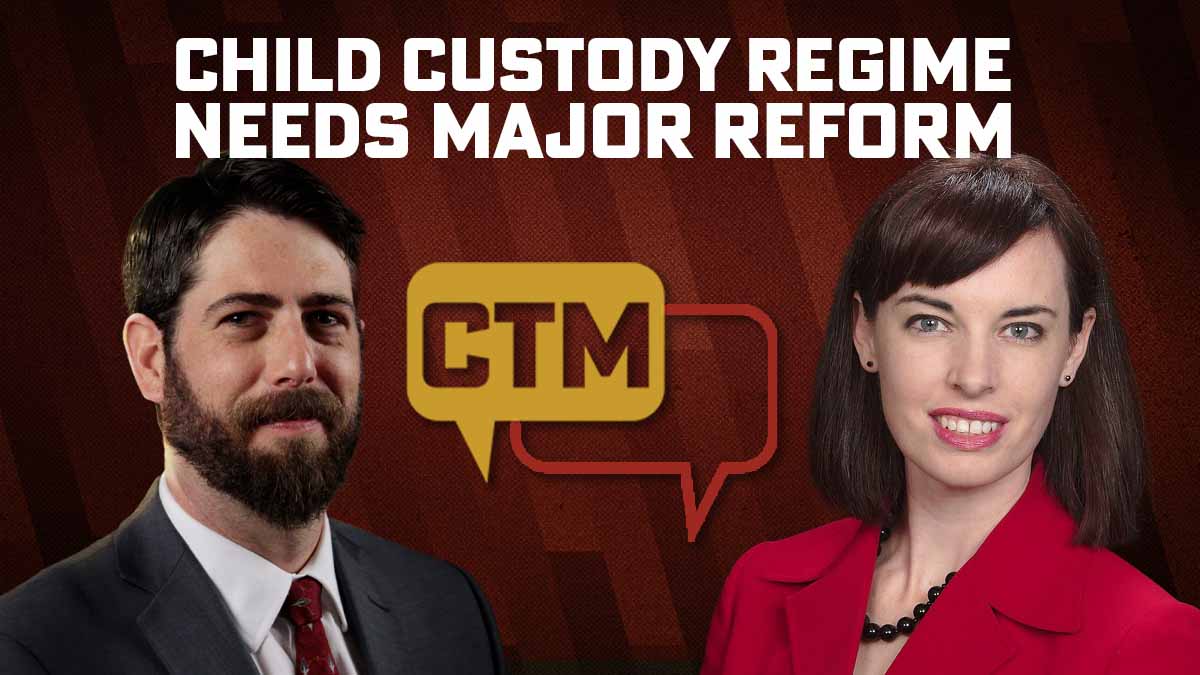
Study: Most Americans Are “Unbiblical” Moral Relativists — and It Invites Tyranny
Addressing a large group of arrivals in Hell, the Devil said, reassuringly, “You’ll find there’s no right or wrong here. Just what works for you.” That scene, presented on a 1977 New Yorker magazine cover, well epitomizes our time, a new study has found. In fact, the research shows, most Americans reject moral absolutes — this is true even of most U.S. “Christians.”
As a consequence, to make what some call “moral decisions,” most Americans don’t actually seek to discern morality. Rather, 74 percent rely on their “feelings.”
A Deep and Worsening Cultural Malaise
My regular readers may note that I’ve often cited 2002 Barna Group research to the aforementioned effect. The new study, also headed up by Dr. George Barna, is an update on that and other earlier research. The worsening picture it paints is troubling, too. As Barna wrote last Thursday at ArizonaChristian.edu:
Most adults in the United States do not believe that there are any moral absolutes, and they live accordingly. New data from the American Worldview Inventory 2025, an annual survey of the core beliefs and behaviors of Americans conducted by the Cultural Research Center at Arizona Christian University, explains why.
An earlier report [May 2] from that survey noted that two out of three American adults currently reject or doubt the existence of absolute moral truth. Even substantial majorities of some of the largest Christian church groups reject absolute morality, including 69% of Catholics and 61% of those who attend a mainline Protestant church.
Beyond that, half of the adults considered to be spiritually conservative and a cornerstone of evangelical Christianity — a niche known as “theologically-identified born-again Christians — admit to rejecting absolute moral truth.
The research has shown that these days, Americans most often make their moral choices based on their emotional reaction to a situation. In fact, the only consideration that a majority of adults trust to discern moral truth is their feelings, which is relied upon by three out of four adults (74%).
This appears starkly worse than what Barna found in 2002. As his organization wrote then:
Nearly four out of ten teens (38%) and three out of ten adults (31%) described … doing whatever feels right … as their primary consideration.
Descent Into Animalism
To be frank, this was predictable. For example, I’ve emphasized for decades, as I did here, that “without moral absolutes to refer to when making decisions, [you] have only the yardstick of feelings left as master.”
Yet let’s also be clear on what this modus operandi amounts to. It is animals that operate based on emotion. What else could they do? They’re creatures bereft of intellect and free will. People are supposed to do better, however.
They do, too, Barna found — in the sense of conjuring up rationalizations to justify moral relativism. For instance, Barna lists the following rationales (all quotations his):
- Accepting conflicting alternative philosophies is a sign of open-mindedness and sophistication.
- “Multiple Truths Exist.” (Note: Terminology matters. If they’re “multiple,” they ain’t “Truths.” They’re “preferences.”)
- “Ever-changing perceptions … about moral truth” refute Moral Truth’s existence.
- The idea of Moral Truth is a social construct.
Okay, Let’s Reason It Out
In reality, though, all the above can be refuted with a bit of Philosophy 101. As to this, I’m going to present a couple of my patent arguments. Number one:
What is the origin of what we call “right and wrong”? There are only two possibilities: Either man determines it (social-construct theory), or something outside of man does. Let’s consider each thesis’ implications.
Regarding social-construct theory, imagine that 90 percent of humanity said it preferred chocolate over vanilla. This wouldn’t mean that chocolate was “right” and vanilla “wrong.” Nor would it mean that chocolate was better in any objective sense. It would simply mean that people happened to like chocolate better. But, question:
Would it be any more logical saying murder was wrong, if we say this for no other reason than the fact that 90 percent of humanity preferred others not kill in a way we call unjust?
So what can we say about the idea of murder’s wrongness being simply a function of man’s collective desires? It would then fall into the same category as the collective desires regarding flavor: that of taste — or preference.
Yet do we really believe this? If so, why use water-muddying terms such as “morality” and “truths”? (That is, unless we’re desperate to avoid coming to terms with our beliefs’ full implications.) Just call the determinations what they are, “preferences” or “tastes,” and be done with it. Accept that your position isn’t even “moral relativism” because that’s a contradiction in terms. It is moral nihilism. Let your words and worldview align.
The Other Point to Ponder
As to the second argument, consider: A man I know of actually told someone close to me, “Murder isn’t wrong. It’s just that society says it is.” While this statement is disturbing to many, it also accords with what Barna found most Americans to believe. For how could they refute this proposition? I know what I could say:
That’s not true because God exists and has established unchanging, absolute moral law.
Of course, someone could disagree with my premise. But the logic is airtight.
If you don’t believe in God, however — or suppose He’s just some flower-child-like “force” who essentially says, “Hey, dude, whatever works for you” — what could you say? For your premise is the same as that murder-justifying man’s.
That is, it is only society that says murder is wrong because society is all there is to say anything. For ours then is a universe devoid of God or, at least, of God’s will regarding human behavior.
In conclusion, moral nihilism is sweeping civilization. It is no small matter, either. For one thing, it invites great evil. After all, rape, kill, steal, lie — why not? Who’s to say it’s wrong?
This goes for tyranny, too. As Dr. Barna writes:
In the absence of strong, consistent, logical, and compassionate opposition to philosophies that reject moral absolutes, cultural gravity will lead to the acceptance of an authoritarian political savior or powerful elitist group as the arbiter of truth for the masses.
Put simply, if God isn’t our highest power, government will be. So be warned: That “convenient,” feelings-guided, sin-justifying, whatever-works-for-you worldview comes at a very, very high price.




